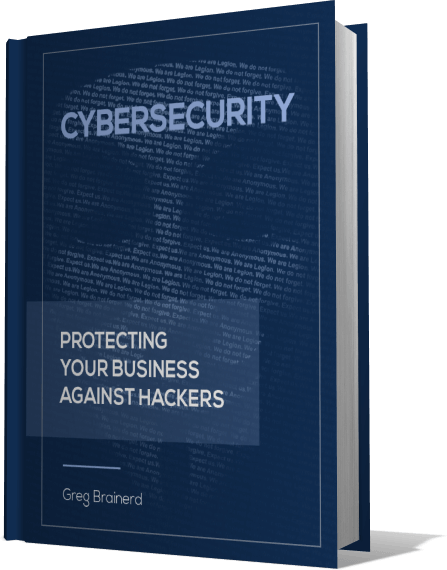
With AI and deepfake scams on the rise in Houston, deepfake cybersecurity is becoming increasingly necessary for small businesses.
AI and deep fake scams are not only extremely convincing, but their fallout can also be catastrophic for both individuals and the organization as a whole. What’s more, the AI scams Houston businesses are facing, are becoming faster to deploy and harder to spot. It’s because of this new trend that leaders need to incorporate the proper deepfake cybersecurity measures necessary to provide effective deepfake protection and mitigate other AI-related threats. This guide will help you understand the threats AI and deep fake scams bring to your business. We’ll also examine deepfake protection tips Houston small businesses can implement now.
What Are AI and Deepfake Scams?
Like any other cybersecurity breach, AI and deepfake scams work to sneak past cybersecurity protections to steal money, disable IT functions, or gain data access. The distinguishing factor is that AI is being used to enhance the deception and effectiveness of these cyberattacks. Due to the deceptive nature of AI, especially deepfake technologies, bad actors can accomplish more widespread confusion, distrust, and misinformation.
AI scams can come in a wide variety, very often when cybercriminals use AI technologies to generate text or images for a variety of other familiar cyber attacks like:
- Phishing emails
- Impersonated CEO messages
- Brand or website deceptions
- False downloads/software - deploying AI-enhanced password-stealing tech
- And more
The most potent form of AI scam is with deepfake.
How Deepfake Scams Work
Odds are, you’ve seen deepfake technology in action, such as in the de-aged actor scenes in movies like Star Wars or Indiana Jones. Special effect artists take an actor, manipulate the graphics to where they can reproduce someone's likeness, and then use it in the film. However, real cybercriminals can apply the same type of technology to do a range of harmful activities, such as impersonating a CEO or even a team member at work to deceive you.
What will typically happen is that a cybercriminal will seek to convince you to voluntarily grant them access to funds or information for them to steal. They do this by deploying an AI-generated video or audio recording of an authority figure in your organization requesting you to send money, share critical information, or perform tasks that could expose the company’s information.
That's essentially what a deepfake scam is: video or audio snippets that are taken to recreate someone else's likeness to infiltrate your business. What’s more disturbing, though, is that due to the rapidly evolving technology, criminals can further train the AI to look or sound more and more like key individuals.
How Small Businesses Fall Victim to Deepfake Scams
Small businesses should consider deepfake cybersecurity measures because it is simply too easy for them to become victims of AI-harnessing cybercriminals. Company YouTube channels, TikTok accounts, or even video clips or podcasts featured on your website - all of this content can be stolen and used to create deepfakes Cybercriminals can take this material, load it into an AI system, and produce an altered media recording that mimics the voice and image of a colleague.
Some of the ways criminals use deepfake technology include:
- Impersonating and defrauding individuals like CEOs
- Deceiving staff members into purchasing supplies, gift cards, and other items
- Directing staff to change someone’s direct deposit information or passwords
- Impersonating a vendor or your company to one of your customers
No one is safe from deepfake scams, be it an individual, large corporation, or small business. What’s more, AI and deepfake crime are extremely effective at disarming individuals and circumventing standard IT protections. Sadly, 77% of AI voice scams got money from their targets.
Why You Need Deepfake Cybersecurity Now
 The main reason why small businesses need to prioritize having deepfake protections in place is twofold. On one hand, the use of AI adds a layer of alarming complexity to any cyber threat. For example, AI tools can clone a voice (called voice printing) from just 30 seconds of audio. Because such a deception can be crafted and implemented so quickly, you need a proactive, established way to protect yourself from deepfakes.
The main reason why small businesses need to prioritize having deepfake protections in place is twofold. On one hand, the use of AI adds a layer of alarming complexity to any cyber threat. For example, AI tools can clone a voice (called voice printing) from just 30 seconds of audio. Because such a deception can be crafted and implemented so quickly, you need a proactive, established way to protect yourself from deepfakes.
On the other hand, deepfake attacks, both nationally and internationally, are intensifying. Just recently in Houston, cybercriminals cloned a man’s voice and convinced his parents to send him $5K to help him after a car crash. The entire car incident was completely fictitious, but the deepfake was so lifelike that the couple sent their money without knowing they were scammed.
In another recent example, leading password management software Last Pass was targeted by texts and an audio deepfake impersonating the CEO via WhatsApp. Fortunately, the employee ignored the messages and reported the incident, but other companies, including small businesses, are not so fortunate. In 2022 alone, over $8.8B was lost due to scams, over 30% higher than in 2021. With AI and deepfakes being used more heavily, the rates and costs of these scam attempts are becoming more devastating to businesses.
Due to the volume and damage of deepfake attempts, leaders need to begin implementing the small business AI defense Houston-based companies need to isolate and prevent such scams. These threats are not going away - instead, they’re getting more advanced. So should your cybersecurity.
4 Steps to Protect Against Deepfakes
Effective deepfake cybersecurity doesn’t simply involve installing the latest detection software. As we’ve seen, individuals are falling prey to deepfakes because they are so human, so convincing. The first step of any AI risk management plan is to incorporate awareness, education, and actionable steps to prevent and contain a deepfake cybersecurity threat. Let’s look at the steps you can take now.
1. Solidify Communication Plans
The first thing you need to do is talk to your staff about the standard ways your company handles communication. It’s important to outline the procedures and methods regarding how leaders reach out to employees with requests. This provides a baseline that employees can use to easily spot suspicious or out-of-nowhere requests associated with deepfake scams. For example, you’ll want to clarify that you or other business leaders will not reach out to staff via something like Facebook, WhatsApp, or other channels that you don’t use internally. Start by outlining the legitimate communication paths that you're going to use as part of day-to-day business.
Even if you use typical mediums like email and text messaging, consider having a standard procedure in place that clarifies the types of requests made. You can also mandate a double-check policy via a secondary communication channel like Slack to verify certain requests, especially when data and money are involved.
Another simple method you can employ is to use tools like caller ID to verify the location of the subject. If the location isn’t showing up or not indicative of where you know your co-worker to be located, something is off. From here, the staff member should reach out to the person contacting them on a secondary official channel to confirm whether the request is legit. You should also include IT and communication procedures for traveling staff.
2. Establish Awareness and Alert Procedures
Knowing about a threat is half the battle in preventing it. That’s why you must make your team aware of just how prevalent AI threats are and how deepfake cybersecurity breaches occur. Just recently, CW39 Houston ran a story on how the Better Business Bureau reported recent activities of criminals using AI callers impersonating businesses to scam people into answering “Yes” that they can use to take and create deepfake responses that authorize purchase What’s more, engaging such a call allows future phone scam targeting. The lesson here? Staff must be able to identify scam attempts to capture their voice for use in deepfakes, as well as when they themselves are facing a deepfake and not a real person.
If something sounds odd or someone has an abnormal request, these are all causes for concern and investigation. Outline what staff members should do when they are suspicious of deepfake scams. Maybe it’s reaching out to a supervisor to confirm the request, or even walking over to the person’s desk to confirm the request in person. Regardless, leaders need to be made aware and then confirm whether the request is legit or not. Pinpointing outlandish requests like buying bulk gift cards is also key.
Encourage staff to take their time if ever uncertain of such a situation, slowing down and analyzing the request to assess if something seems like a scam. Having verifications in your processes instead of taking odd requests at face value is critical for preventing a cyber breach. That said, this all comes down to deepfake protection training.
3. Conduct Staff Deepfake Cybersecurity Training
Employee training is a critical part of preventing any type of fraud and cyber breach. When it comes to AI and deepfake, this requires more focus on the human element because you need to address exactly how these scams are designed to mimic individuals that staff may know. For this, you really should consider working with an experienced, Houston-based cybersecurity training provider like Braintek.
This is because staying up-to-date on deepfake tech and even having a general plan of response aren’t enough. It’s critical that your team know the intricacies of the technology itself and how you as a company can respond if you’ve been targeted. All it takes is 30 seconds of your voice via voicemails or YouTube video to make an AI voice print that sounds just like you and use it to cause serious havoc with your IT network, your clients, or directly with your finances.
Braintek helps you avoid this by providing in-depth training specifically tailored to help your team identify and avoid the kind of behaviors indicative of deepfake scams. We go through real-life scenarios, break down how cybercriminals use media and recordings to create deepfakes, and help you identify the tell-tale signs that you’re facing a deepfake scam.
Our courses help you pinpoint the urgent or immediate-response language used to push staff into sending money or private information. We examine ways to identify if the voice sounds robotic/artificial and look for things like grammatical errors, inconsistencies, or accents that raise doubt. We’ll also discuss deepfake protection tips Houston companies are applying right now that protect both their staff and organization from being defrauded. Simple techniques like quickly identifying and avoiding (or ending) deepfake calls help organizations avoid costs of time, money, and reputation.
Braintek provides our customers with a full-scale training regimen composed of articles and videos that go out monthly, warning staff of new AI threats and the best responses. By consistently training your team on deepfake scams, you ensure your infrastructure and finances remain resilient to evolving threats - a critical component of business continuity.
Remember, employee training will also permeate throughout individual employee lives, because it's not just businesses that are getting targeted. Scammers target individuals to take advantage of them, their family, and their company, too.
4. Undergo An AI Security Assessment
 You may have a strong cybersecurity system and plan in place, but is it equipped to handle and navigate the complexities of AI and deepfake scams? The bigger question is, do you want to take a chance that it’s not?
You may have a strong cybersecurity system and plan in place, but is it equipped to handle and navigate the complexities of AI and deepfake scams? The bigger question is, do you want to take a chance that it’s not?
Deepfake cybersecurity is an elevation to your traditional cybersecurity plan. It focuses on adding more protection to your current cyber protections to ensure your network is more resilient and capable of handling threats enhanced with AI. But to do this, you need to understand where your cybersecurity stands so that you can continue building it. To do this, you need cybersecurity risk assessments from trusted Houston-based cybersecurity consultants like Braintek.
Our AI-focused cybersecurity risk assessments look at your current security posture to identify any gaps that could be exploited by cybercriminals and deepfake scammers. Braintek examines if your IT protections are up-to-date and compliant with relevant security regulations in your industry. The assessment investigates whether you’re missing patches on your computers, if your anti-spam and other security programs are functioning, and if your passwords are protected. We also engage you on the plans you have in place to deal with a breach to see if you are missing critical components.
When it comes to AI/deepfakes, we delve into how you and your system authenticate users. This often necessitates us working with company leaders to define major threats that might be a target of deepfakes and build ways to protect vital business areas. We work with companies on establishing various levels of verification and how they can safeguard phone, video chat, and email communications. In some scenarios you may just want to terminate a suspicious call immediately, or maybe try and discover the root of the deepfake - these are all things we can help you plan for to prevent immediate attacks as well as future deepfake scams.
By helping you identify scenarios where deepfakes may target your company and staff, we help you form a game plan for spotting and avoiding deepfakes before they become a severe issue. However, the assessment will also help you develop an emergency response to AI scams Houston companies all need in place should their initial defenses falter due to human error.
All of this starts with understanding your current state of IT protection in order to add deepfake protections that further enhance your security and readiness.
Deepfake and Cybersecurity Trends Are Changing
Deepfake and cybersecurity trends are constantly changing, which means you must adapt your IT network and company culture as well. As AI and deepfake technologies become more convincing, more Houston businesses will inevitably become prey to these deceptions. Some may be forced to close, while others who embrace deepfake cybersecurity will have a major advantage in negating these scams and avoiding significant losses. This is exactly what Braintek wants to help you achieve.
Call or submit a web form to schedule your cyber security assessment today. We will work with you to see if there are any gaps or holes in your IT security and help your team be ready to face any IT or deepfake threats that may come your way.







